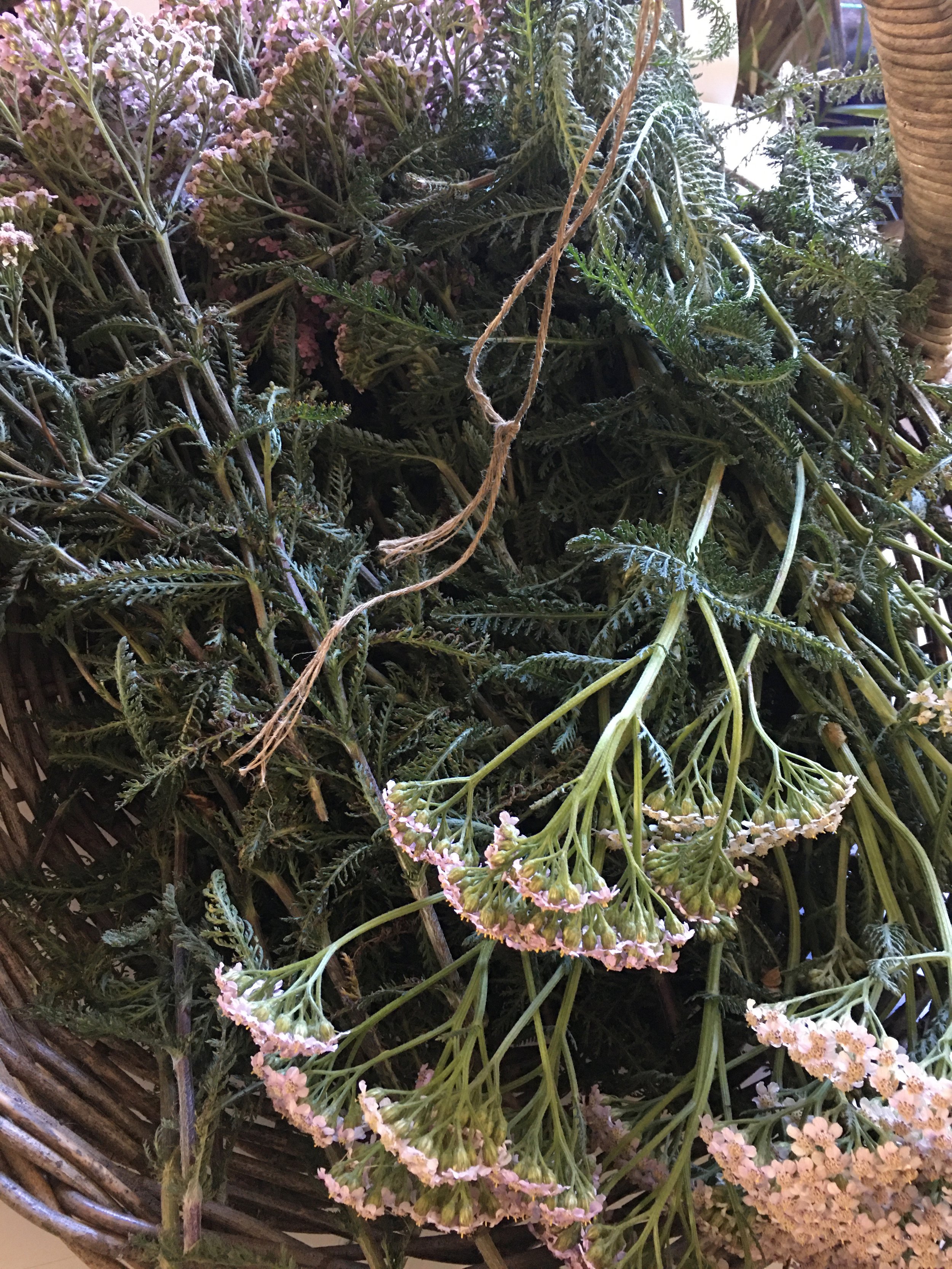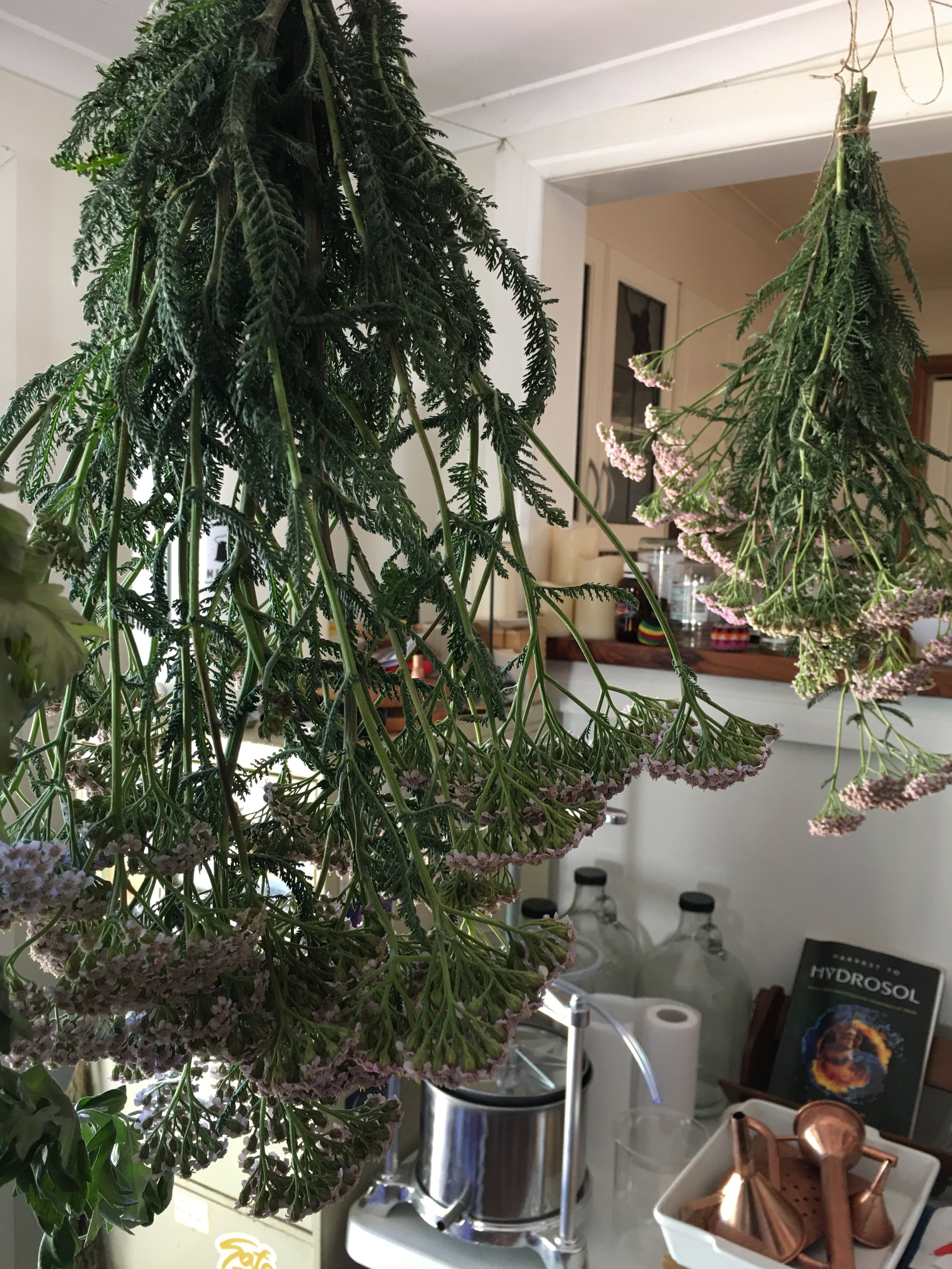 Image 1 of 3
Image 1 of 3

 Image 2 of 3
Image 2 of 3

 Image 3 of 3
Image 3 of 3




Yarrow (Pink) Seeds
Yarrow, Pink ‘Cerise Queen’ Hybrid (Achillea millefolium)
Description:
Pink 'Cerise Queen' Yarrow is a cultivar of the traditional white yarrow. It produces flat-topped clusters of small, pink flowers that vary in shade, blooming from late spring to summer, attracting an array of beneficial insects. Yarrow is a low-growing perennial herbaceous plant, belonging to the Asteraceae family, known for its delicate white flowers and feathery foliage. It typically grows between 1 to 3 feet (30 to 90cm) in height and has finely divided, fern-like leaves that are aromatic when crushed. The flowers are arranged in an umbrella-like shape and attract pollinators such as hover-flies, bees and butterflies.
Growing Conditions:
Climate: cool-temperate but adaptable and can grow in a variety of climates.
Position: full sun for optimal growth and flowering although can tolerate partial shade, but it may result in weaker and less abundant blooms.
Soil: well-draining, sandy or loamy soil but can tolerate poor or rocky soil types; ideal soil pH should be neutral to slightly alkaline, ranging from 6.0 to 7.5.
Water: moderate water needs; drought-tolerant once established.
Spacing: space the plants approximately 12 to 18 inches (30 to 45cm) apart.
Propagation: sow the seeds directly into the garden bed or seed flats/pots in spring or autumn when after the last frost (germination usually occurs in 1 to 2 weeks).
Harvest: It is best to use the whole flowering plant fresh or dried for various herbal preparations.
Flower: harvest the flowers when they are fully open and in their prime. Harvesting the flowers early in the morning, after the dew has evaporated, can help preserve their fragrance and freshness.
Leaf: the leaves can be harvested at any time during the growing season.
~200 seeds per pack
Yarrow, Pink ‘Cerise Queen’ Hybrid (Achillea millefolium)
Description:
Pink 'Cerise Queen' Yarrow is a cultivar of the traditional white yarrow. It produces flat-topped clusters of small, pink flowers that vary in shade, blooming from late spring to summer, attracting an array of beneficial insects. Yarrow is a low-growing perennial herbaceous plant, belonging to the Asteraceae family, known for its delicate white flowers and feathery foliage. It typically grows between 1 to 3 feet (30 to 90cm) in height and has finely divided, fern-like leaves that are aromatic when crushed. The flowers are arranged in an umbrella-like shape and attract pollinators such as hover-flies, bees and butterflies.
Growing Conditions:
Climate: cool-temperate but adaptable and can grow in a variety of climates.
Position: full sun for optimal growth and flowering although can tolerate partial shade, but it may result in weaker and less abundant blooms.
Soil: well-draining, sandy or loamy soil but can tolerate poor or rocky soil types; ideal soil pH should be neutral to slightly alkaline, ranging from 6.0 to 7.5.
Water: moderate water needs; drought-tolerant once established.
Spacing: space the plants approximately 12 to 18 inches (30 to 45cm) apart.
Propagation: sow the seeds directly into the garden bed or seed flats/pots in spring or autumn when after the last frost (germination usually occurs in 1 to 2 weeks).
Harvest: It is best to use the whole flowering plant fresh or dried for various herbal preparations.
Flower: harvest the flowers when they are fully open and in their prime. Harvesting the flowers early in the morning, after the dew has evaporated, can help preserve their fragrance and freshness.
Leaf: the leaves can be harvested at any time during the growing season.
~200 seeds per pack
Yarrow, Pink ‘Cerise Queen’ Hybrid (Achillea millefolium)
Description:
Pink 'Cerise Queen' Yarrow is a cultivar of the traditional white yarrow. It produces flat-topped clusters of small, pink flowers that vary in shade, blooming from late spring to summer, attracting an array of beneficial insects. Yarrow is a low-growing perennial herbaceous plant, belonging to the Asteraceae family, known for its delicate white flowers and feathery foliage. It typically grows between 1 to 3 feet (30 to 90cm) in height and has finely divided, fern-like leaves that are aromatic when crushed. The flowers are arranged in an umbrella-like shape and attract pollinators such as hover-flies, bees and butterflies.
Growing Conditions:
Climate: cool-temperate but adaptable and can grow in a variety of climates.
Position: full sun for optimal growth and flowering although can tolerate partial shade, but it may result in weaker and less abundant blooms.
Soil: well-draining, sandy or loamy soil but can tolerate poor or rocky soil types; ideal soil pH should be neutral to slightly alkaline, ranging from 6.0 to 7.5.
Water: moderate water needs; drought-tolerant once established.
Spacing: space the plants approximately 12 to 18 inches (30 to 45cm) apart.
Propagation: sow the seeds directly into the garden bed or seed flats/pots in spring or autumn when after the last frost (germination usually occurs in 1 to 2 weeks).
Harvest: It is best to use the whole flowering plant fresh or dried for various herbal preparations.
Flower: harvest the flowers when they are fully open and in their prime. Harvesting the flowers early in the morning, after the dew has evaporated, can help preserve their fragrance and freshness.
Leaf: the leaves can be harvested at any time during the growing season.
~200 seeds per pack